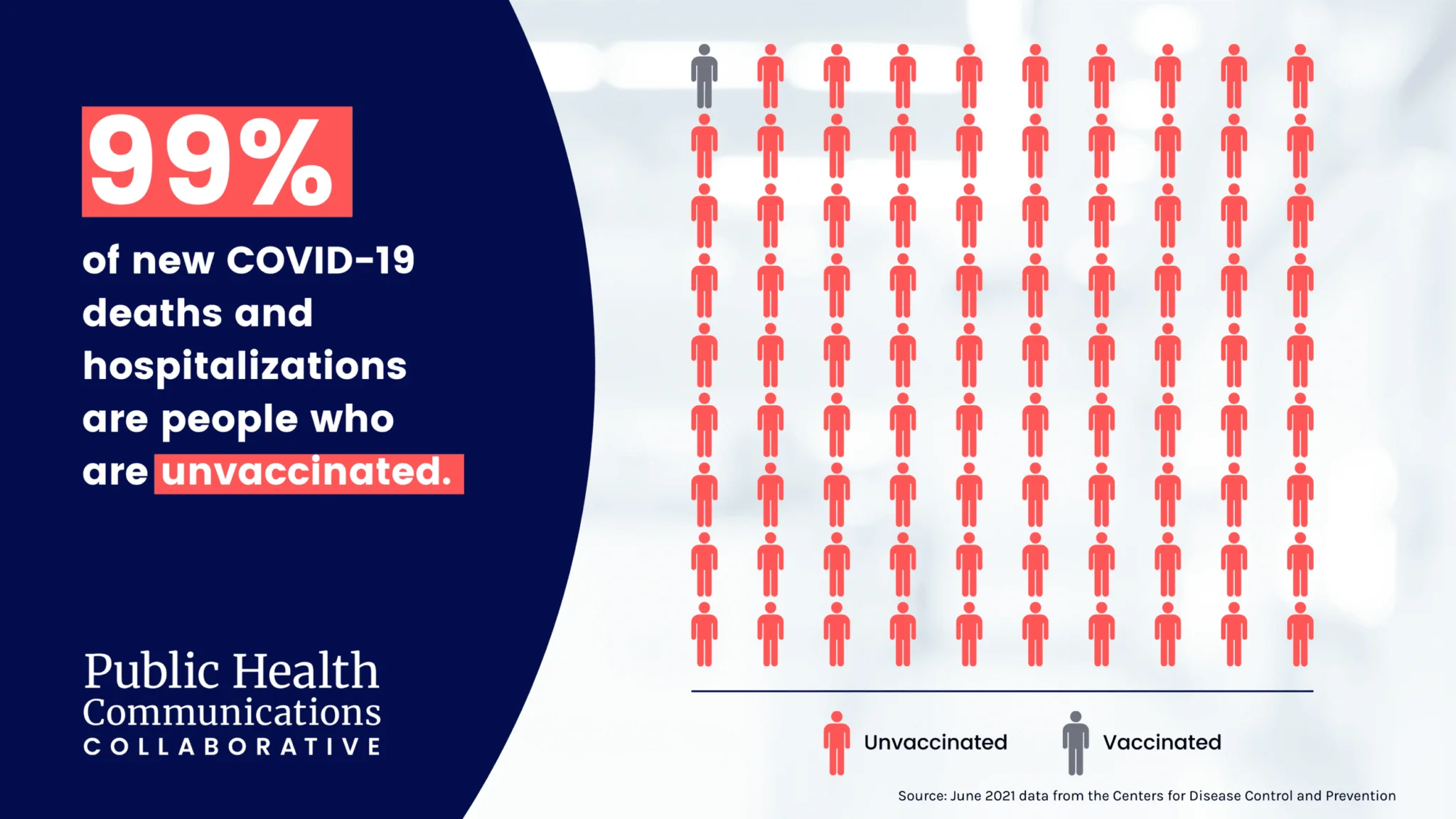
You may have heard in the news recently about “breakthrough cases,” or vaccinated people testing positive for COVID-19.
If you’re vaccinated, you might be worrying about whether your vaccine will hold up against the more contagious delta variant.
If you’re not vaccinated, you might be wondering why you should get vaccinated if you could get infected with COVID anyway.
Here are three important things to know about breakthrough cases.
1. The COVID-19 vaccines provide solid protection against the delta variant.
The delta variant of COVID-19 is more than two times as contagious as previous strains. For many people, this raises concerns that the vaccines won’t protect as well against delta as they did the original strain.
While you can get COVID-19 even if you’re vaccinated, the vaccines remain highly effective at preventing hospitalization and death. Information about breakthrough cases is still limited, but the data so far are encouraging.
Unvaccinated people are four and a half times more likely to get infected with COVID than vaccinated people. Furthermore, the unvaccinated are 15.4 times more likely to die from COVID. Vaccines save lives.

2. The term “breakthrough infections” is misleading.
The COVID-19 vaccines are designed to prevent severe illness and death—and they do a great job of it. By providing your body with instructions on how to fight the virus, these vaccines prepare your immune system to rally at the first sight of COVID-19.
What a vaccine can’t do is prevent germs from getting into your nose and mouth. That’s why the term “breakthrough infection” is a bit of a misnomer. Vaccines don’t stop a virus from entering your body. They simply prepare you to fight back when it does.
Most vaccinated people will have a much lower risk of infection, hospitalization and death when compared to unvaccinated people.
3. Even if you’re vaccinated, you shouldn’t let your guard down.
We all have a responsibility to reduce the spread of the virus. Although unvaccinated people remain the greatest concern, vaccinated people can still spread COVID-19. That means it’s important to continue wearing masks, avoiding crowds, and taking other steps to protect yourself and your community.
Keep practicing the 3Ws: wash your hands, wait six feet apart, and wear a mask.
If you’re fully vaccinated but have come into close contact with someone with COVID-19, the CDC recommends getting tested 3-5 days after exposure and taking extra precautions not to spread the virus for 14 days or until you test negative.
This is our chance to end the pandemic. Our individual actions matter. Keep your guard up, and do what you can to help keep those around you safe
Want to learn more about health insurance? Reach out the Health Plans Agent on this webpage by clicking the button below.
Ready to get started?
Related Articles

Fear Of COVID-19 Vaccines Is Real - Should It Be?
When I listened to my relative speak, I could hear the fear in her voice. And it was real.
Of course, there are a lot of other reasons why people aren’t getting vaccinated. They’re making a political statement, they don’t have easy access to the vaccine, or they just don’t like being told what to do. But for millions of people, the number one roadblock is fear. But what’s driving that fear?
By Emilie Poplett via Blue Cross NC

How To Tell Fact From Fiction With COVID-19 Information
The internet has given us access to information faster than ever. Unfortunately, that information is not always accurate. And the spread of misinformation has real consequences on our health care decisions.
In recent years, misinformation has proliferated throughout the internet. It can seem impossible to differentiate what is true and what isn’t. When COVID-19 arrived, public trust in institutions was already dwindling. That created the perfect storm for misinformation to spread, at a time when the difference between fact and fiction could save lives.
via Blue Cross NC by Zachary Newcastle

Supporting Our Seniors Amid COVID-19
Adjusting to our new routines during COVID-19 looks different for everyone. For some, it’s fewer trips to the mall or more meals at home. But for at-risk individuals, it can mean complete isolation.
As we now know, COVID-19 causes the most severe health issues for adults over 60, with particularly fatal results for those 80 years and older. This is forcing many senior citizens in our communities to stay indoors. While it helps limit coronavirus exposure, it also limits interactions with friends and family.
Blue Cross NC

Get The Facts About COVID-19 Vaccines: 5 Rumors Debunked
It’s reasonable to have concerns about a new vaccine.
To help you separate fact from fiction, Blue Cross and Blue Shield of North Carolina Medical Directors are breaking down some of the most common myths.
Blue Cross NC